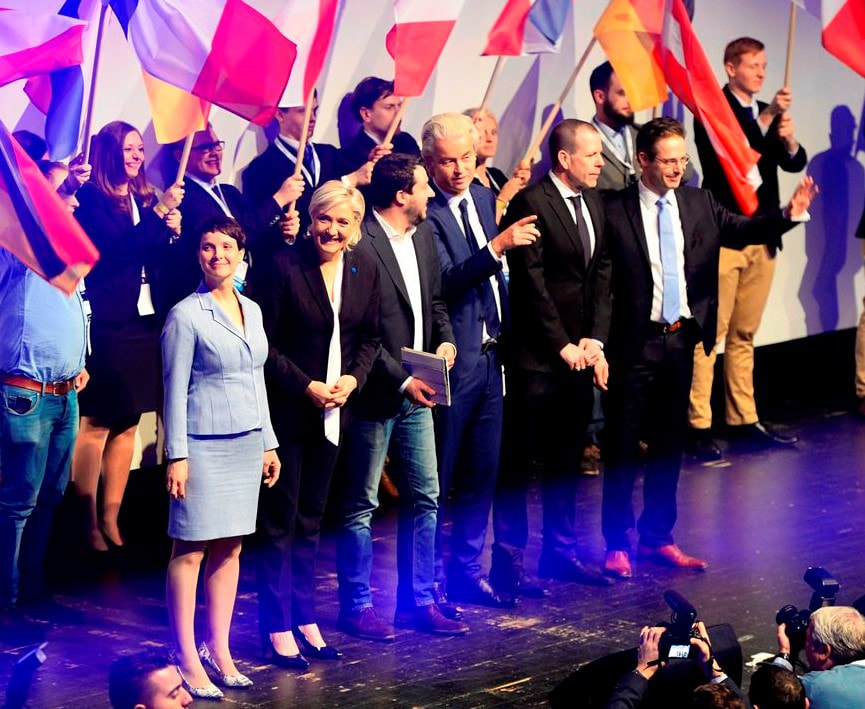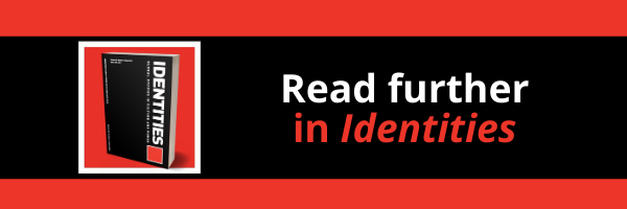|
|
|
Cross-posted by Ideology Theory Practice
Discussion and debate about the far right, its rise, origins and impact have become ubiquitous in academic research, political strategy, and media coverage in recent years. One of the issues increasingly underpinning such discussion is the relationship between the far right and the mainstream, and more specifically, the mainstreaming of the far right. This is particularly clear around elections when attention turns to the electoral performance of these parties. When they fare as well as predicted, catastrophic headlines simplify and hype what is usually a complex situation, ignoring key factors which shape electoral outcomes and inflate far-right results, such as trends in abstention and distrust towards mainstream politics. When these parties do not perform as well as predicted, the circus moves on to the next election and the hype starts afresh, often playing a role in the framing of, and potentially influencing, the process and policies, but also ignoring problems in mainstream, establishment parties and the system itself — including racism. This overwhelming focus on electoral competition tends to create a normative standard for measurement and brings misperceptions about the extent and form of mainstreaming. Tackling the issue of mainstreaming beyond elections and electoral parties and more holistically does not only allow for more comprehensive analysis that addresses diverse factors, manifestations, and implications of far-right ideas and politics, but is much-needed in order to challenge some of the harmful discourses around the topic peddled by politicians, journalists, and academics.
To do so, we must first understand and engage with the idea of the ‘mainstream’, a concept that has attracted very little attention to date; its widespread use has not been matched by definitional clarity or subjected to critical unpacking. It often appears simultaneously essentialised and elusive. Crucially then, we must stress two key points establishing its contingency and challenging its essentialised qualities. The first of these points is therefore that the mainstream is constructed, contingent, and fluid. We often hear how the ‘extreme’ is a threat to the ‘mainstream’, but this is not some objective reality with two fixed actors or positions. They are both contingent in themselves and in relation to one another. In any system, the construction and positioning of the mainstream necessitate the construction of an extreme, which is just as contingent and fluid. These are neither ontological nor historically-fixed phenomena and seeing them as such, which is common, is both uncritical and ahistorical. What is mainstream or extreme at one point in time does not have to be, nor remain, so. The second point is that the mainstream is not essentially good, rational, or moderate. While public discourse in liberal democracies tends to imbue the mainstream or ‘centre’ with values of reason and moderation, the reality can be quite different as is clearly demonstrated by the simple fact that what is mainstream one day can be reviled, as well as exceptionalised and externalised, as extreme the next, and vice versa. Racism would be one such example. As such, the mainstream is itself a normative, hegemonic concept that imbues a particular ideological configuration or system with authority to operate as a given or naturalise itself as the best or even only option, essential to govern or regulate society, politics and the economy.
One of the main problems with the lack of clarity over the definition of the mainstream is that its contingency is masked through the assumption that it is common sense to know what it signifies, thus contributing to its reification as something with a fixed identity. Most people (including academics) feel they have a clear idea of what is mainstream; they position themselves according to what they feel/think it is and see themselves in relation to it. We argue that a critical approach to the mainstream, which challenges its status as a fixed entity with ontological status and essentialised ‘good’ and ‘normal’ qualities, is crucial for understanding the processes at play in the mainstreaming of the far right. To address various shortcomings, we define the process of mainstreaming as the process by which parties/actors, discourses and/or attitudes move from marginal positions on the political spectrum or public sphere to more central ones, shifting what is deemed to be acceptable or legitimate in political, media and public circles and contexts. The first aspect we draw attention to is the agency of parties and actors in the matter. Far-right actors are often positioned as agents, either unlocking their own success through internal strategies or pushing the mainstream to adopt positions that would otherwise be considered ‘unnatural’ to it. While we do not wish to dismiss the potential power of far-right actors to exert influence, it is essential to reflect on the capacity of the mainstream to shift the goalposts, especially given the heightened status and power that comes from the assumptions described above. What we highlight as particularly important is that shifts can take place independently and that the far right is not the sole actor which matters in understanding the process of mainstreaming. A far-right party can feel pressured or see an opportunity to become more extreme by mainstream parties moving rightward and thus encroaching on its territory. However, a far-right party can also be made more extreme without changing itself, but because the mainstream moves away from its ideas and politics. The issues associated with the assumed immovability and moderation of the mainstream have led towards a lack of engagement with the role of this group. It is therefore imperative to challenge these assumptions and capture the influence of mainstream elite actors, particularly with regard to discourse, in holistic accounts of mainstreaming. This leads on to one of the core tenets of our framework, which places discourse as a central feature with significant influence across other elements. Too often, discourse has been swallowed up within elections, seen solely as the means through which party success might be achieved, but we argue that it can stand alone and that the mainstreaming of far-right ideas is not something only of interest and concern when it is matched by electoral success. Our framework highlights the capacity of parties and actors from the far right or mainstream (though the latter has greatest influence) to enact discursive shifts that bring far-right and mainstream discourse closer or further from one another. Problematically, we argue, discourse is often seen solely in terms of its strategic effects for electoral outcomes. While we do not deny its importance in this regard, we suggest that discursive shifts may not always be connected in the ways we might expect with elections, and that the interpretation of electoral results can itself feed into the process of normalisation. First, changes at the discursive level do not always lead to a similar electoral trajectory, nor do the effects stop at elections: the mainstreaming of far-right ideas and narratives (including in and as policies) has the potential to both weaken the far right’s electoral performance if mainstream politicians compete over their traditional ground or bolster such parties by centring their ideas as the norm. Whatever the case, we must not lose sight of the effects on those groups targeted in such exclusionary discourse. The impact of mainstreaming does not stop at the ballot box. This feeds into the second key point about elections, in that the way they are interpreted can further contribute to normalisation, either through celebrating the perceived defeat of the far right or through hyping the position of far-right parties as democratic contenders. Certainly, this does not mean that we should not interrogate the reasons behind examples of increased electoral success among far-right parties, but that we must do so in a nuanced and critical manner. We must therefore guard against simplistic conclusions drawn from electoral, but also survey, data which we discuss at length in the article. Accounts of the electorate, often referred to through notions of ‘the people’ or ‘public opinion’, have tended to skew understandings of mainstreaming towards bottom-up explanations in which this group is portrayed as a collection of votes made outside the influence of elite actors. Through our framework, we seek to challenge these assumptions and instead underscore the critical role of discourse through mediation in constructing voter knowledge of the political context. Far from being a prescriptive framework or approach, our aim is to ensure that future engagement with the concept, process and implications of mainstreaming is based on a more critical, rounded approach. This does not mean that each aspect of our framework needs to be engaged with in great depth, but they should be considered to ensure criticality and rigour, as well as avoid both the uncritical reification of an essentially good mainstream against the far right, and the normalisation and mainstreaming of the far right and its ideas. We believe it is our responsibility as researchers to avoid the harmful effects of narrower interpretations of political phenomena which present an incomplete yet buzzword-friendly picture (i.e. ‘populist’ or ‘left behind’), often taken up in political and media discourse, and feed into further discursive normalisation. This brings us to the more epistemological, methodological, and political reason for the intervention and framework proposal: the need for a more reflective and critical approach from researchers, particularly where power and political influence are an issue. It is imperative that researchers reflect on their own role in contributing to the discourse around mainstreaming through their interpretations of related phenomena. This is important in the context of political and social sciences where, despite unavoidable assumptions, interests and influence, objectivity, and neutrality are often proclaimed. Necessarily, this demands from researchers an acknowledgement of their own positionality as not only researchers, but also as subjects within well-established and yet often invisibilised racialised, gendered, and classed power structures, notably those within and reproduced by our institutions, disciplines, and fields of study.
Image credit: ROBERTO PFEIL / AFP / Getty Images
Blog post by Katy Brown, University of Bath, UK; Aurelien Mondon, University of Bath, UK; and Aaron Winter, University of East London, UK and Co-Editor, Identities: Global Studies in Culture and Power
Cross-posted by Ideology Theory Practice. This blog post is based on the authors' Journal of Political Ideologies article, 'The far right, the mainstream, and mainstreaming: Towards a heuristic framework'.
Explore relevant Identities articles:
Whiteness, populism and the racialisation of the working class in the United Kingdom and the United States When Eurosceptics become Europhiles: far-right opposition to Turkish involvement in the European Union Rethinking ‘Nativism’: beyond the ideational approach OPEN ACCESS
0 Comments
Your comment will be posted after it is approved.
Leave a Reply. |
|
Explore Identities at tandfonline.com/GIDE |
|
The views and opinions expressed on The Identities Blog are solely those of the original blog post authors, and not of the journal, Taylor & Francis Group or the University of Glasgow.


